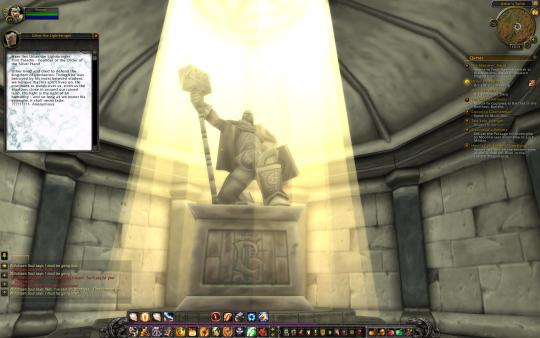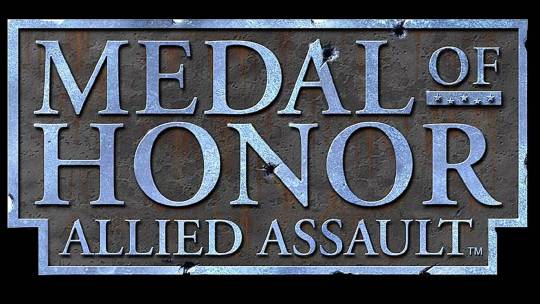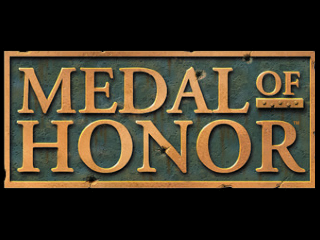Πατήστε ΕΔΩ για το ίδιο άρθρο στα Ελληνικά.
Yes, I'm writing about a game from 2014.
I've done worse.
This one will be quick (by my standards, at least). After 55 hours, I finally finished "Dragon Age: Inquisition" and I'm considerably disappointed. It left me with feelings almost identical to those I had after
Metal Gear Solid V concluded, only MGSV had more entertaining mechanics. Having said that, RPGs in general are a genre that benefits immensely from subsequent play-throughs and especially the Bioware kind, which relies on different choices and paths and companion options and so on. Even
Dragon Age II I learned to appreciate after the second or third try, so I'm holding back any definitive opinions on
Inquisition, lest I want to end up with my foot in my mouth.
So, character analysis and plot themes and romance options and all that jazz will take a backseat for now, but there are issues that probably won't go away later, not the least of which is the combat.
Origins offered the standard cRPG tactical party gameplay, DAII streamlined the mechanics a lot to make them more fitting to consoles and
Inquisition elected to balance the two by focusing on an MMORPG-type of combat style. I get it to some degree; in its sandbox environment, tactical micromanagement of a party with constantly respawning mobs could get exhausting (think Orzammar/Deep Roads in
Origins, only even more stretched out), but unfortunately the MMO mechanics aren't particularly enjoyable or engaging by default.
Combat is indicative of every problem with
Inquisition in that what's wrong with the game is that it's simply "too big to succeed". Sandbox is a very shaky design foundation, which can collapse in all sorts of messy and ugly ways if not done right. It's a style of game that relies on a variety of factors to succeed, not the least of which is player choice.
The Elder Scrolls also feature terrible combat, but they get away with it, because they rely heavily on exploration.
The Witcher 3 also relies on exploration, but on top of that it offers deep and exciting combat mechanics that make every stop to take down an enemy a joy.
Inquisition telegraphs everything; it tries to walk a fine line to have everything balanced and everyone satisfied and as such it excels at nothing.
It reminds me heavily of another game I played recently that had similar problems;
Kingdoms of Amalur: Reckoning. That's also an open-world RPG and it's a good game for the most part. But, much like
Inquisition, I spent a lot of time in it doing menial tasks, while the main quest took a backseat to the point that I almost forgot about it.
Amalur offers better combat, but really discourages exploration. Most importantly, just like
Inquisition, Amalur is also designed less as an open-world RPG and more as an MMORPG.
There's difference between the open-world of a single-player game and the open-world of an MMORPG. In the case of the latter, "open-world" is a borderline necessity, a meeting place for a bunch of players to interact and play with one another. It's also a bit of an overworld between dungeons. Sometimes exploration will yield results, but rarely any surprises. It exists for the illusion of a living, breathing world inhabited by actual people that play the game. In MMOs, this overworld is populated by cannon-fodder enemies that exist as the ladder to the real meat of the game, the raid dungeons in the endgame. In a single player game, open-world is a sandbox, it's the playground in which one, single player will have to find tons of things to do, to explore, to discover new things, to hunt for better loot and spend time in that, making changes to it and crafting their own experience.
I recall
Two Worlds, a game I enjoyed more than
Inquisition and certainly not because it's a better game (because it's not). The main quest of
Two Worlds is absolutely terrible; short, stupid, badly written through and through with not a single interesting character to be found anywhere in its world. But
Two Worlds is a game that relies heavily on exploration and mechanics; you'd never know what the next gallop on your horse would reveal, what new area you would find, what you would come across. More than that, you wanted to take on enemies, partly because they wouldn't ever respawn (giving you a sense of accomplishment) and mostly because you wanted to steal their shit so you could combine them with your shit to make better shit. Looting was a major factor in exploration and combat, as was discovery.
Inquisition's failures come largely from its approach to its sandbox, partly because this approach is the MMORPG approach and because of the sheer scale of its content. Not just the size of the content, not just the volume, but the scale. There's a lot of content in the game, but very little of it -comparatively- is of any real value. The main quest-line lasts between 7-10 hours, depending on player skill and level and each of the quests in the campaign can take upwards to two hours to complete. Unfortunately, even 10 hours can be drowned in a sea of a 100-hour-content game, or even a 50-hour-content game or even a 25-hour game for those that just power through the main quest-line without most of the side-stuff. Main quests are level and power-gated to begin with, but the side-quests that get you there don't offer any rewards outside of some dry Codex entries for the lore. There are no surprises, no loot, no colorful characters that help with the world-building in any organic way. They exist purely for grinding purposes, to boost up the player's level and Power accumulation to proceed through the main quest. It's exactly how MMOs do it, as well.

RPGs, in general, tend to be huge games with a lot of filler from way
back in the days of Lord British and Black Isle Studios. It's not like
Bioware decided to do anything radically different in this game. What's
significantly different with
Inquisition or
Amalur that
ultimately makes them stumble is the sandbox. That's why I insist that
it's not the volume of the content, but rather its scale that causes the
issue. In traditional RPGs, play was focused on doing as many quests as
you could; that was the meat of the game. When the focus shifts toward
story or exploration and the game itself offers too little of either,
the rest of the content will just be kind of in the way. When there are
no interesting or peculiar characters that are involved in the quests or
any significant lore information or loot to be discovered, they are
just there to kill time and don't really offer much to the player.
Bioware's latest game stands as an interesting sample of a game that's swamped in its own content. More content-for-buck will always be desirable by gamers, but it's now important to focus on pacing that content, to mind how we distribute that content to the audience so that we don't drown them in it and so that we maintain their attention throughout the entire game. We live in an era when the sheer volume of titles out there creates new
challenges and dictates new approaches for developers when making a
game. You can't expect a player to mindlessly repeat the same
task in your game, when there is a backlog of another 200 games waiting
in their Steam library.
In
Inquisition, for example, it would've been preferable for the main quest-line to have no gates. Since progression isn't linear any more, it would've better to allow the quests to be easily tackled at any point at the player's leisure, just like the Elder Scrolls games allow. Many players prefer to speed through the main quest and then tackle all the side-quests afterwards.
Kingdoms of Amalur had the same problem.
Also, some of the areas that are free for exploration, but have nothing to do with the main plot (particularly some areas at the West parts of Orlais), could've been made available only during the endgame. The plot of the game suffers from poor setting; by "poor" I mean exactly that; lacking in variety or diversity or highlights, the context, the framework isn't enough to get players invested in the events that take place. The famed Inquisition's purpose is told more than shown and the notion that the game pushes that it's because of the great Inquisitor, the player's actions that turn this organization from a small band of heretics to a fearsome army falls flat, because the players rarely feel it.
We never get the sense of achievement that we should. We are told to find horses for the soldiers or get better weapons or grind the Requisition quests, but there is no sense of accomplishment, we never get the feeling we're actually making a difference, we're only told we do; all the while engaging in what's essentially fetch-quest after fetch-quest. That's also one of the primary reasons the War Table would need to be rebalanced. The ridiculous time it takes to complete some missions create a disconnect and the inability to access the thing outside Skyhold makes it a bother, another thing you have to remember doing when you return to your base.
Generally speaking, I find
Dragon Age: Inquisition a big, daring step for Bioware and one that they've clearly put a lot of work into. I'm not so much blaming them for something, I just think the game presents a very interesting example of how a few minor missteps in approach can break your game. I find it could serve as a good place to start a bigger discussion regarding pacing gameplay, beyond the simple concepts of difficulty curve and reward and focus on how to balance player agency and pre-determined, carefully crafted design. The nuances of making this work are many and I doubt there is a guaranteed solution, no matter what you do. After all, it's not so much that game developers don't take such complications into consideration -I'm sure they do- I just question how these complications evolve and change over time with the industry and how the industry will need to adjust in the design level.
Innovation happens rarely and even when it does, it's not certain it will work. That's why I find this a good discussion to have within games development; at least from my perspective as a gamer, someone who consumes a lot of games. Bioware did a lot of things right in
Inquisition, but a handful of missteps threw the entire game off-balance. It'd be interesting, to me, to see what can be learned from this.













